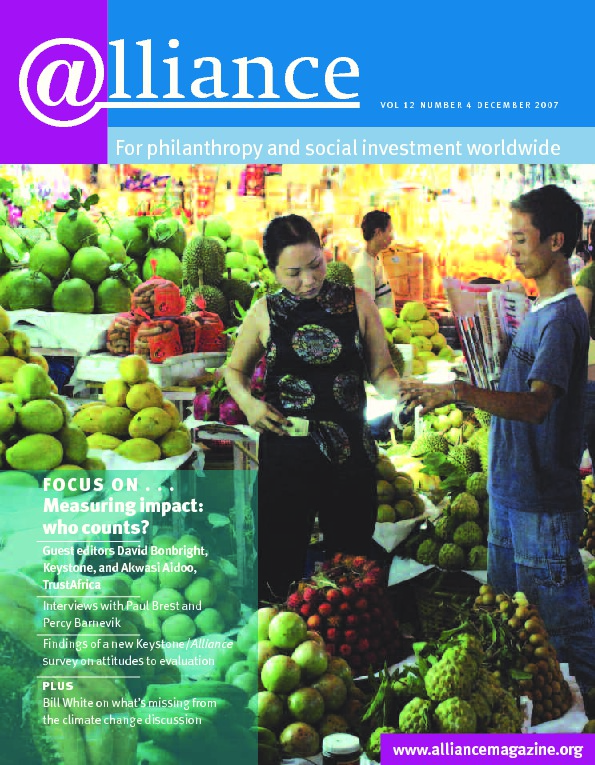Steven Burkeman’s article Beyond verbal confusions (September 2007) got me thinking about what ‘philanthropy’ means in New Zealand. In our mainstream institutions, philanthropy is largely about giving to people you don’t know very well, and without any expectation of direct return. In M?ori communities, my friends tell me, giving is usually to people you do know – may well be related to even – and it’s about strengthening relationships and reciprocity.
Giving to people to whom you are connected and who are in need is expected rather than elective, though done willingly. There is no exact equivalent term, but others that resonate well – manaaki (roughly translates as nurturing, hospitality), tautoko (support), koha (a gift that requires reciprocity, now or in the future) and so on.
There is of course no reason why different cultures should have developed identical concepts. The point is that those of us in the dominant culture can so easily forget this and assume that everyone views the world as we do.
Meanwhile in the ‘trade’ here, we generally use the P word to include much grantmaking that doesn’t meet my definition of philanthropy, because at no stage does it require an act of personal generosity (for example, putting money in a gambling machine where one-third of the proceeds goes to charity).
The word has for many become the brand name for organized non-government giving of any sort, thereby creating a ‘sector’ of much greater size than is linguistically acceptable to pedants like me. Yet even I see that in the New Zealand context there is some merit in using the word in a more inclusive way.
Our experience emphasizes Steven?s points about the elasticity of language, and the need to clarify meaning.
Iain Hines
Executive Director, J R McKenzie Trust, New Zealand





Comments (0)